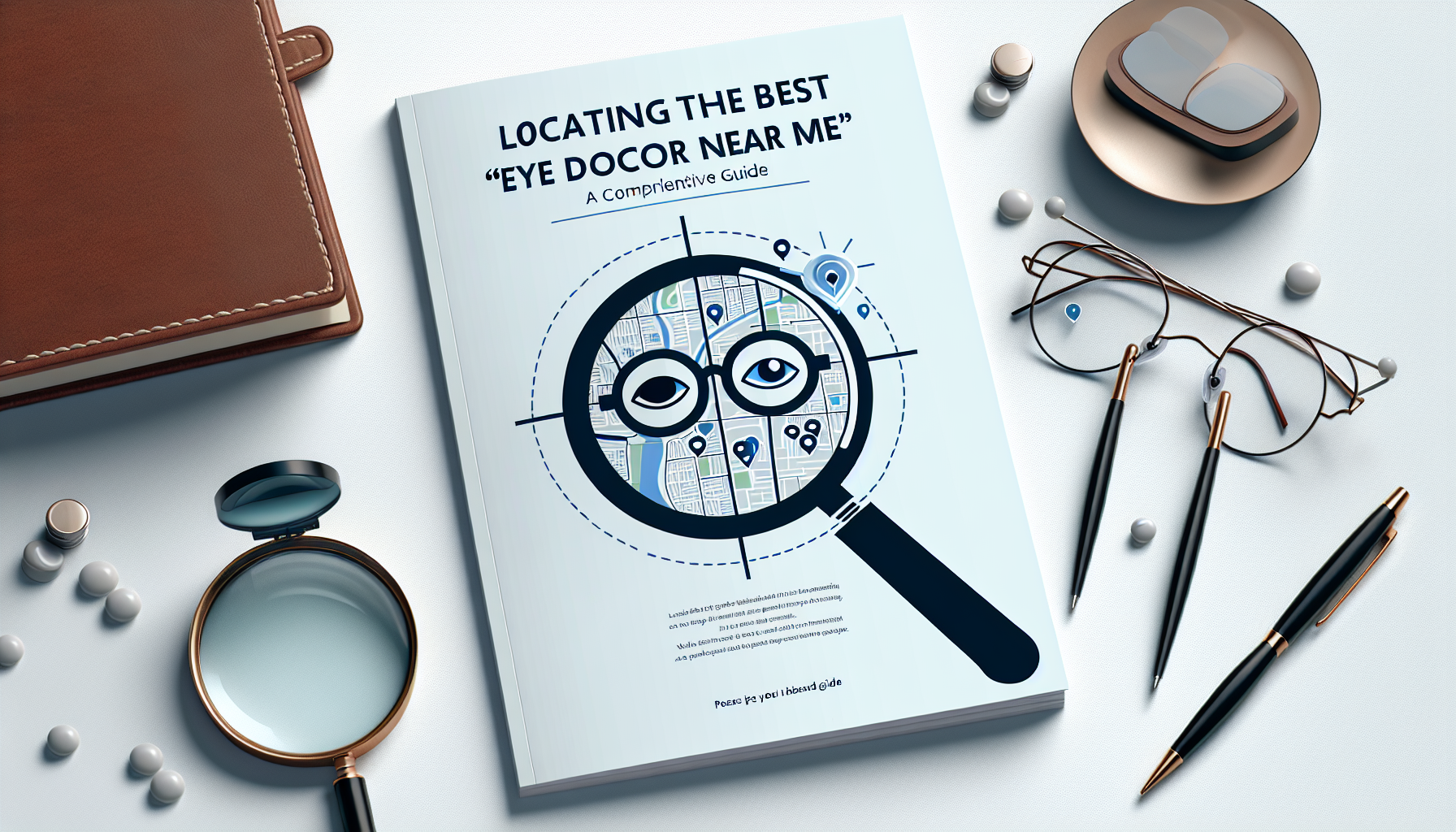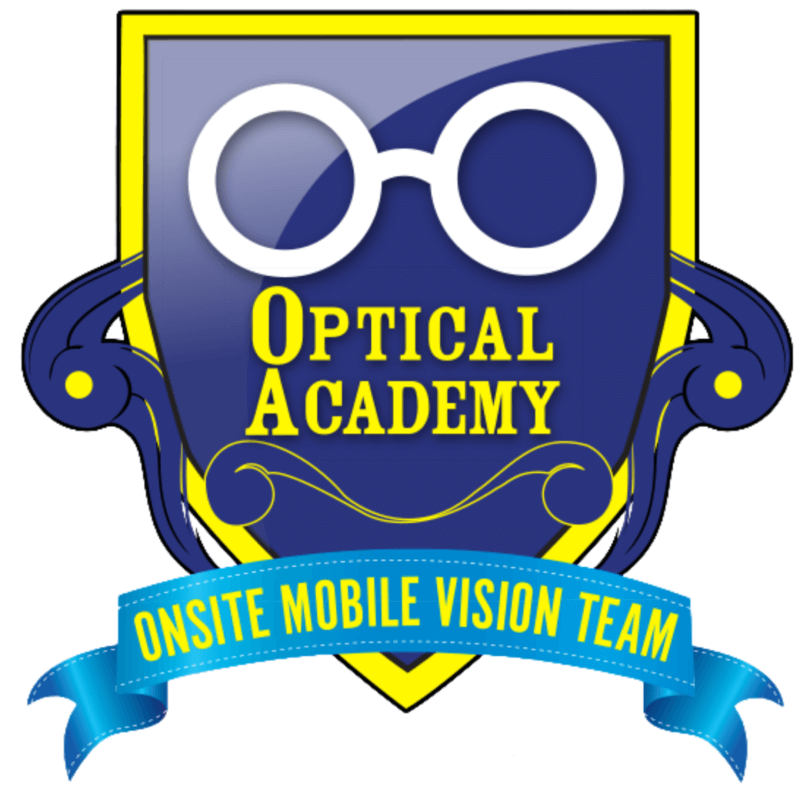
Finding the right ‘eye doctor near me’ can be a pivotal step towards safeguarding one of your most vital senses – your vision. Whether you require a routine eye exam or specialized care for a specific condition, the plethora of options available can be overwhelming. From trusted online resources like MediFind.com to peer-reviewed platforms such as Yelp, unraveling the web of eye care services doesn’t have to be daunting. In Louisville, KY, establishments like VisionFirst and America’s Best stand out by offering a blend of quality eye care services tailored to meet your unique needs, ensuring you have access to both exceptional care and value.
As you embark on the journey to locate ‘eye doctors around me’, understanding the distinction between optometrists and ophthalmologists becomes crucial. Your eye health deserves a provider whose expertise aligns perfectly with your requirements. This comprehensive guide will navigate you through locating a reputable eye doctor in your vicinity, equipped with the necessary skills and experience. We’ll take into account crucial factors such as patient reviews, insurance compatibility, and accessible locations like VisionFirst on Poplar Level or Hurstbourne. Preparing for your appointment is essential, and by the end of this guide, you’ll not only be well-informed but also ready to make a confident decision that can lead to a clearer, brighter future.
Table of Contents
Identifying Your Eye Care Needs
Identifying your specific eye care needs is the first step toward maintaining optimal eye health. Regular eye exams are essential, even if you aren’t currently experiencing vision problems. These check-ups serve as a preventive measure to catch potential issues early on, ensuring you can take action before they progress. According to the National Eye Institute, everyone should have their eyes checked regularly to maintain good vision and eye health [NEI].
Here are key points to consider when determining your eye care needs:
- Regular Check-Ups: Regardless of whether you have perceived vision issues, routine eye exams are crucial for preserving your sight. These exams can detect silent conditions that may not yet have symptoms.
- Symptoms Prompting a Visit: If you experience symptoms like blurry vision, eye pain, or difficulty focusing with glasses or contacts, it’s time to seek an eye doctor. Additionally, follow any recommendations from your healthcare provider for a dilated eye exam, which is a critical component of comprehensive eye care [CDC].
- Choosing the Right Specialist: Know the difference between eye care professionals. Optometrists can conduct eye exams, prescribe corrective lenses, and treat common eye diseases. In contrast, ophthalmologists are medical doctors specializing in eye care, capable of performing eye surgery and treating more complex eye conditions [WebMD].
- Exam Components: A comprehensive dilated eye exam may include tests for visual field, visual acuity, and tonometry to measure the pressure inside your eyes, which are pivotal in detecting diseases like glaucoma [MedlinePlus].
- Frequency of Eye Exams: The frequency of eye exams can depend on factors such as age, race, and overall health. For instance, African Americans are at a higher risk for glaucoma and may need to begin regular screenings at an earlier age [Cleveland Clinic].
- Early Disease Detection: Early detection and treatment of eye diseases like cataracts, diabetic retinopathy, and macular degeneration are vital for maintaining vision and can often be addressed more effectively with prompt care [Stoney Creek Eye Care].
- Lifestyle for Eye Health: In between visits to your eye doctor, maintain your ocular health with a balanced diet, regular exercise, protective eyewear for UV rays, and by avoiding smoking. The 20-20-20 rule, taking a 20-second break to view something 20 feet away every 20 minutes, can also help reduce eye strain from screen use [Penn Medicine].
- Preparation for Exams: When preparing for an eye exam, consider bringing a friend, especially if you’ll need assistance after dilation. It’s also wise to prepare a list of questions regarding your exam, diagnosis, and treatment options to make the most of your appointment [VisionAware].
Incorporating these practices into your routine can significantly contribute to the preservation of your vision. When searching for ‘eye doctors around me’, remember that your proactive approach to eye care is a key factor in long-term eye health.
Optometrist vs. Ophthalmologist: Who to Choose?
When you’re looking to address your vision needs, it’s essential to understand the qualifications and services offered by different eye care professionals. The choice between an optometrist and an ophthalmologist can be dictated by the complexity of your eye care requirements. Here’s what you need to know:
- Education and Specialization:
- Optometrists have a Doctor of Optometry (OD) degree, entailing four years in optometry school post their undergraduate studies. They are your go-to for primary vision care, adept at conducting sight tests, diagnosing vision changes, and managing minor eye conditions with medications as needed.
- Ophthalmologists are medical doctors with a specialization in eye and vision care. Their extensive training includes a medical degree followed by a residency, amounting to at least eight years post-college. They can manage the full spectrum of eye care, from prescribing glasses to performing intricate eye surgery.
- Services Provided:
- Optometrists are skilled at performing eye exams and vision tests, detecting eye abnormalities, and prescribing corrective measures like eyeglasses or contact lenses. They are your first point of contact for basic eye health and routine care.
- Ophthalmologists offer a broader range of services, addressing all medical and surgical eye issues. This includes the treatment of complex eye diseases and performing surgeries, on top of the services optometrists provide. They can also specialize further through fellowship training, focusing on areas such as glaucoma or retinal diseases.
- Choosing the Right Eye Care Professional:
- If your needs are centered around routine vision checks and updating your eyewear, seeking an optometrist may suffice. They can efficiently handle these requirements and guide you on the path to maintaining good eye health.
- For conditions that are more complex, require surgical intervention, or involve specialized care, an ophthalmologist is recommended. They have the necessary expertise to deal with serious eye conditions and provide comprehensive treatment plans.
Remember, when searching for ‘eye doctor near me’ or ‘eye doctors around me’, your choice should align with your specific eye care needs to ensure you receive the most appropriate and effective care.
How to Find a Reputable Eye Doctor Near Me
To ensure you choose a reputable eye doctor that meets your specific needs, consider the following steps:
- Start with Recommendations:
- Reach out to your primary care physician or specialists for referrals to trusted eye doctors.
- Ask family and friends about their experiences and who they recommend.
- Review your insurance provider’s list of covered eye care professionals for options in your area.
- Research and Credentials:
- Conduct online research to read reviews and testimonials from other patients.
- Verify the eye doctor’s credentials, ensuring they are licensed and board-certified.
- Check their specialization to see if they provide the care you need, such as pediatric eye care or low vision services.
- Confirm their office hours and location to fit your schedule, and make sure they’re conveniently located for regular visits.
- Consultation and Comfort:
- Schedule a consultation to experience the eye doctor’s communication style firsthand.
- During the visit, assess whether you feel comfortable and if the doctor addresses your concerns clearly.
- Write down questions in advance and get tips on how to talk to your eye doctor to ensure a productive appointment.
- Technology and Services:
- Review the eye doctor’s website for information on the latest technology and services they offer.
- Look into their payment options and confirm that they accept your insurance or discuss financing if necessary.
- Post-Appointment Evaluation:
- After your visit, reflect on whether the doctor and staff were informative and if you had the opportunity to ask questions.
- Consider if you feel confident in the eye doctor’s ability to be part of your long-term eye health team.
- Additional Resources:
- Explore online directories from the American Optometric Association, American Academy of Ophthalmology, and American Society for Retina Specialists for additional options.
- If you’re uninsured or your plan doesn’t cover eye care, inquire directly with the eye doctor’s office about costs.
- Booking a visit with us.
By following these steps, you’ll be well on your way to finding the best ‘eye doctor near me’ who can provide you with personalized, high-quality eye care.
Preparing for Your Appointment
To ensure a smooth and effective visit to your eye doctor near you, it’s important to come prepared. Here’s a checklist to help you get ready for your appointment:
- Essential Items to Bring:
- Valid identification and insurance cards to verify your coverage and identity.
- Your current eyeglasses or contact lenses, along with the previous prescription if available.
- A comprehensive list of medications you’re currently taking, as some can affect your vision or interact with treatments.
- If you’ve noticed changes in your vision, record the specifics such as when the changes occur, activities that may cause vision problems to worsen or improve, and how frequently these changes happen.
- Health History and Comfort Measures:
- Be ready to discuss your family’s eye health history since many eye conditions have hereditary links.
- Bring sunglasses to your appointment; your eyes may be sensitive to light following dilation procedures.
- Stay hydrated before the exam, as this can help with comfort during eye tests.
- Aim for a good night’s sleep prior to your appointment, targeting 8 hours of rest, and try to minimize screen time to avoid straining your eyes.
- Preparation and Communication with Your Eye Doctor:
- Consider your eyewear preferences and create a list of frame styles you like, which will be helpful if you need a new prescription.
- Have a set of questions or concerns ready for your optometrist to address any specific issues you may have.
- Inform your eye doctor about any noticeable vision problems before the tests begin, as this information can guide a more targeted examination.
- Remember that regular eye exams are key to detecting silent issues like glaucoma or macular degeneration early on, and how often you should have your eyes checked can vary based on individual health conditions, jobs, or medications that might necessitate more frequent visits VSP.
By preparing for your eye exam with these steps, you’ll be setting the stage for a productive visit, ensuring that your ‘eye doctors around me’ can provide the best care tailored to your needs.
Conclusion
As we’ve explored throughout this guide, finding the right eye doctor is an integral part of maintaining your visual health. Our discussion has differentiated between optometrists and ophthalmologists, emphasizing the importance of selecting a specialist whose expertise aligns with your specific eye care needs. By utilizing the suggested resources and tips, such as leveraging referrals and conducting thorough research, you are now better equipped to make an informed decision and find a reputable eye doctor in your vicinity.
Remember, regular eye exams are pivotal in the early detection and treatment of potential eye conditions. By preparing adequately for your eye care appointments and incorporating good eye health practices into your daily routine, you are taking affirmative steps towards preserving your precious sight. With this guide in hand, you are ready to navigate the search for ‘eye doctors around me’ with confidence, clarity, and the foresight to ensure a bright future for your vision.


Worksite
All Employees Served With Direct Vision Care All In One Day At Their Worksite!.
Glasses2Classes
Vision screenings, eye exams, and eyewear for all students at their schools!
Community Events
Provide Easy Access To Eye Care & Eyewear for Your Entire Community!
At Home
Skip the trip! We travel directly to all fragile homebound patients!